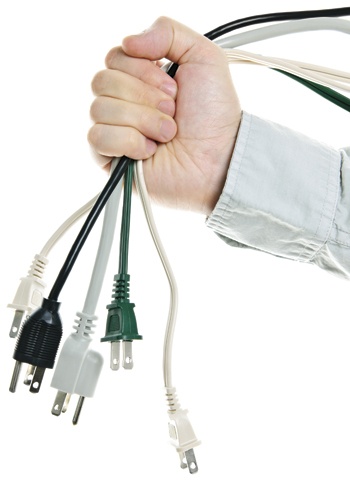We use electrical appliances to heat, cool and clean and perform countless other chores around our homes and businesses every day. It’s easy to take these time-saving tools for granted and forget to put safety first. Here are some useful tips to help keep you and your appliances safe.
• When using space heaters, toasters, stoves, lamps or any heat-producing appliances, remember to keep combustibles such as paper, drapes and furniture clear of the appliance.
• Keep the appliance clean, operating properly and out of high-traffic areas.
• Unplug irons and space heaters when you are finished and let them cool before storing.
• Never try to operate an electric appliance while touching metal, standing on a wet surface or taking a bath or shower.
• Under certain circumstances, a ground-fault circuit interrupter automatically shuts off power to the outlet, protecting you from electrical shock and preventing fires. GFCIs should be installed in outlets near water sources such as bathrooms, kitchens, laundry rooms, garages and outdoors. If your outlet has a “test” and “reset” button, it has a GFCI.
• Keep objects, including fingers, away from all electric outlets. To prevent injury to young children, use outlet covers and never overload outlets.
• Unplug appliances before cleaning, while performing minor repairs and when not in use.
• Keep motors clean and free from lint, dust and dirt.
• If an appliance sparks, smokes or delivers a shock, unplug it and don’t use it again until it has been repaired.
• Have a qualified electrician assess your electric load; leave repairs and installations to the experts.
• Replace blown fuses with ones that are correctly sized in amperage and wattage.
Some of the most common safety hazards are caused by misuse of extension cords. It’s important to observe these safety rules when you find it necessary to use them:
• Use a heavy-duty cord for power tools, a weather-resistant cord for outdoors and a three-wire cord with a three-prong plug for appliances that require grounding.
• Avoid using a three-pronged adapter, and never remove the third prong to create a two-prong plug.
• Avoid kinking, twisting or crushing the cord.
• Pull the plug, not the cord.
• Don’t place a cord where it will be walked on, tripped over or damaged.
• Keep cords away from heat and water.
• Never wrap a cord around a metal pipe or an appliance, and don’t run a cord under a rug.

